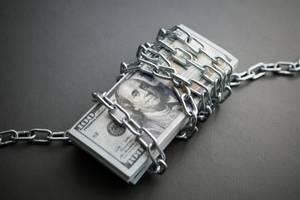 Most people are aware that they may face consequences if they are convicted of a crime. However, they may not realize that there are a number of situations in which police officers or other law enforcement officials may take money or property that they own. These forfeitures may be ordered as a sentence following a conviction, but many people are also subject to civil asset forfeitures in which money or property is taken because officers believe that it was related to criminal activity. Some recent court decisions involving federal crimes may play a role in cases where law enforcement attempts to seize people’s money.
Most people are aware that they may face consequences if they are convicted of a crime. However, they may not realize that there are a number of situations in which police officers or other law enforcement officials may take money or property that they own. These forfeitures may be ordered as a sentence following a conviction, but many people are also subject to civil asset forfeitures in which money or property is taken because officers believe that it was related to criminal activity. Some recent court decisions involving federal crimes may play a role in cases where law enforcement attempts to seize people’s money.
In the case of United States v. Akhavan, which took place in a federal court in New York, a judge overturned a forfeiture order against a man who was convicted of bank fraud. The defendant had operated payment processors that tricked banks and credit card companies into accepting payments related to marijuana, even though their policies prohibited these types of transactions. More than $156 million in payments were processed, and the man accepted over $17 million in commissions. The government attempted to seize the entire $17 million, since it had been obtained through fraud.
The judge in this case determined that the forfeiture order was excessive. Since the financial institutions involved in the case did not suffer any losses, the amount would not be seized for remedial purposes, but solely as a punitive measure. In most cases involving these types of white collar crimes, fines range from $250,000 to $1 million. The forfeiture order in this case would have been 17 times the maximum fine for the offense and 170 times the amount of the actual fine that was imposed on the defendant. The judge reduced the forfeiture order to the value of the defendant’s stock options in the business used to commit the offense, which was around $100,000.
In another recent case, a man in New Orleans had nearly $30,000 seized by DEA agents. He had been carrying this cash, his life savings, with the intent of buying a tow truck. When traveling home after the sale fell through, he was searched at an airport, and agents confiscated the cash because they believed that it was involved in drug crimes. In a trial that lasted for nearly a year, the man showed that he had obtained the money legitimately and planned to use it for legal purposes, and the full amount that was seized was returned to him.
When money or property is seized by law enforcement officials, people may not know how to respond, and they may struggle to get back what they own. At Woolf & Ross Law Firm, LLC, we provide representation for defendants in criminal cases, and we also assist in cases involving civil asset forfeiture. We work to protect our clients’ rights and make sure money that is confiscated improperly will be returned. Contact our Hartford criminal defense lawyer today by calling 860-290-8690 to set up a complimentary consultation.
Sources:
https://www.law.com/newyorklawjournal/2021/12/03/rare-decision-holding-a-forfeiture-order-to-be-constitutionally-excessive-may-provide-roadmap-for-future-challenges/
https://www.nytimes.com/2021/10/31/us/federal-agents-money-forfeiture.html
 50 Founders Plaza
50 Founders Plaza

